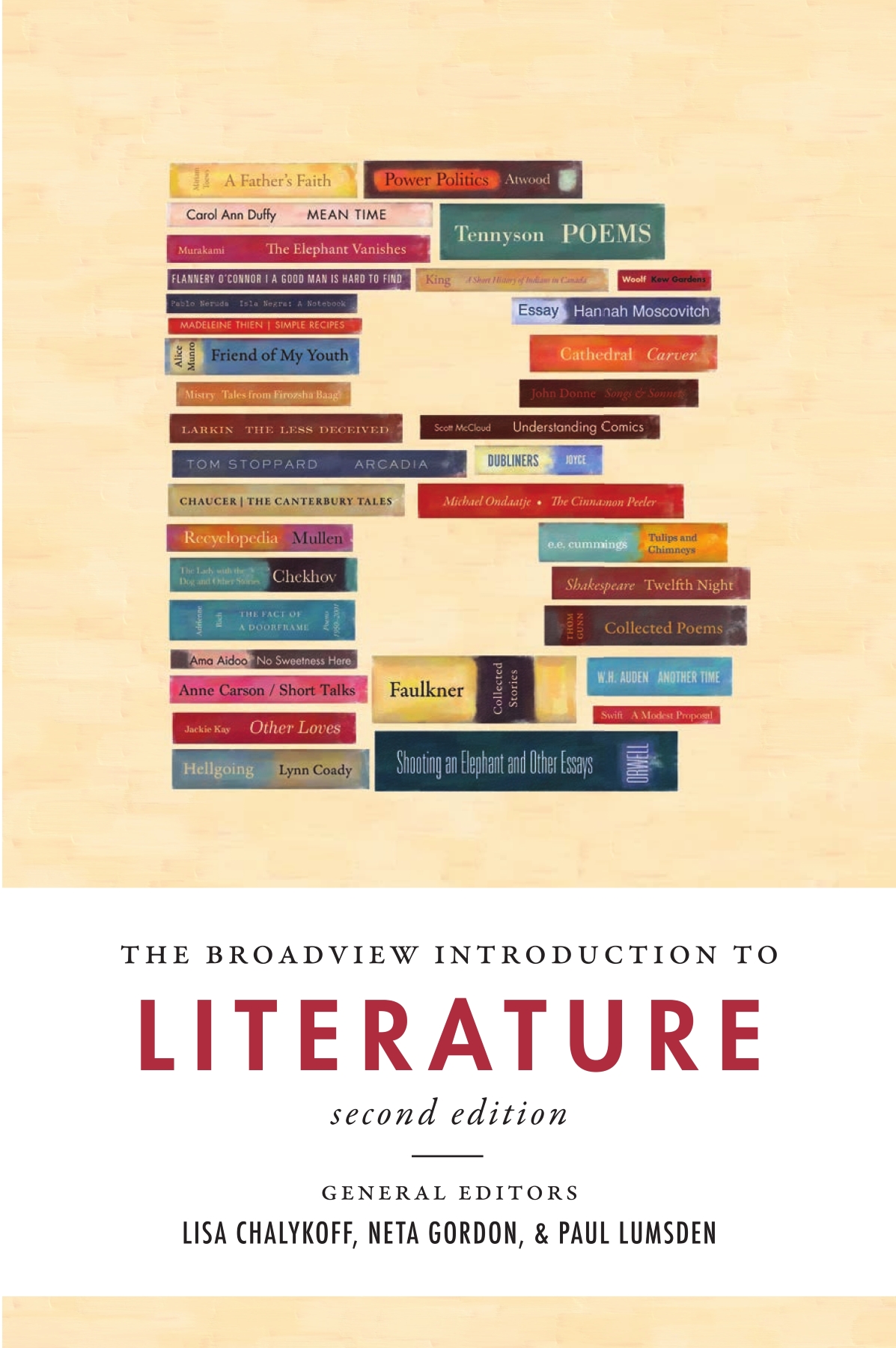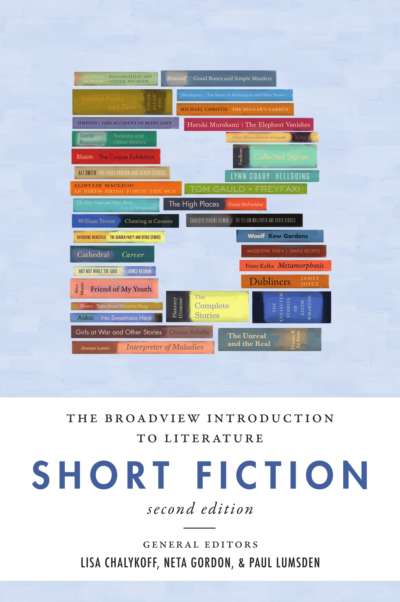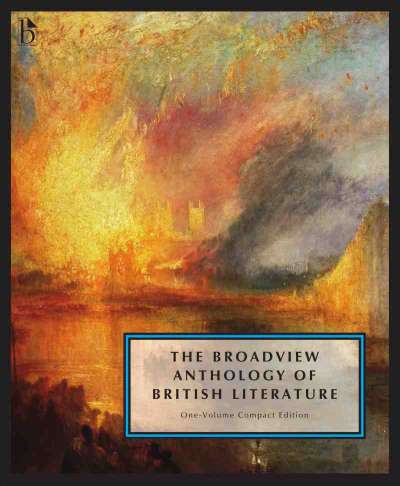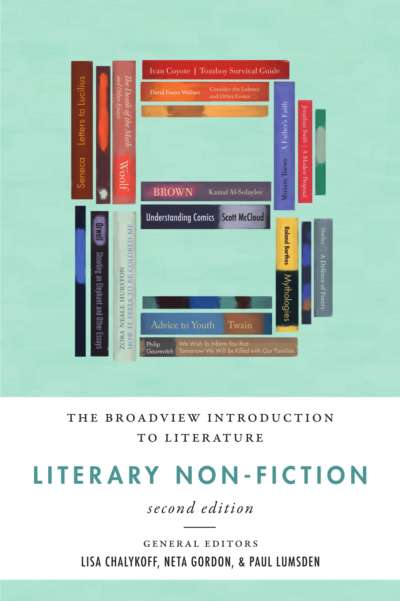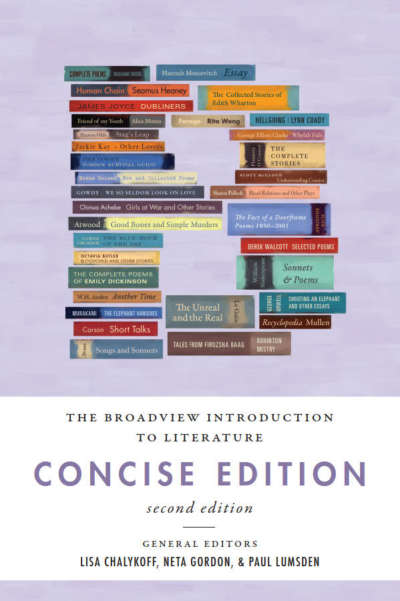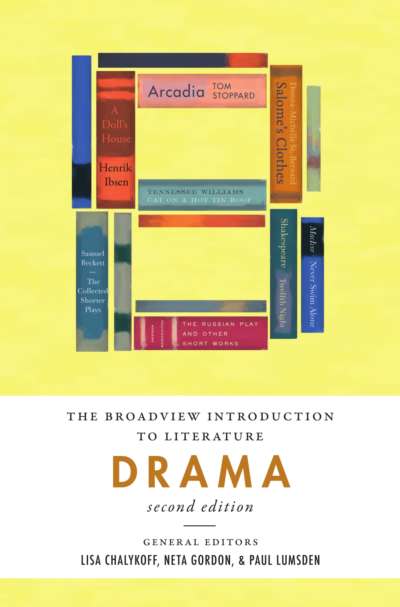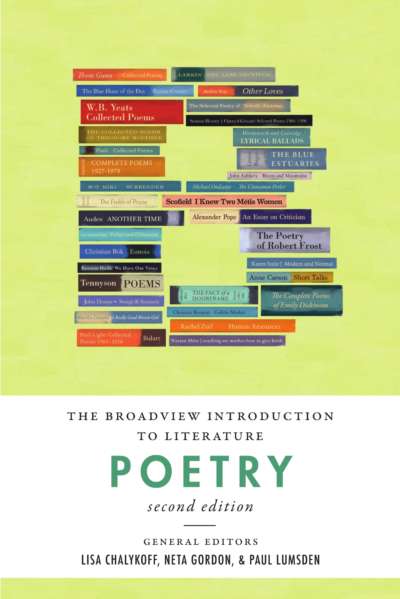Preface
Acknowledgements
The Study of Literature
SHORT FICTION
Introduction
Edgar Allan Poe (1809–1849)
Kate Chopin (1850–1904)
Guy de Maupassant (1850–1893)
Joseph Conrad (1857–1924)
Charlotte Perkins Gilman (1860–1935)
Edith Wharton (1862–1937)
Susan Glaspell (1876–1948)
James Joyce (1882–1941)
Virginia Woolf (1882–1941)
Franz Kafka (1883–1924)
Katherine Mansfield (1888–1923)
William Faulkner (1897–1962)
Ernest Hemingway (1899–1961)
Flannery O’Connor (1925–1964)
- “A Good Man Is Hard to Find”
William Trevor (1928–2016)
Ursula K. Le Guin (1929–2018)
- “The Ones Who Walk Away from Omelas”
Chinua Achebe (1930–2013)
Alice Munro (b. 1931)
Alasdair Gray (b. 1934)
Alistair MacLeod (1936–2014)
- “As Birds Bring Forth the Sun” 158
Raymond Carver (1938–1988)
Margaret Atwood (b. 1939)
Ama Ata Aidoo (b. 1940)
Thomas King (b. 1943)
- “A Short History of Indians in Canada”
James Kelman (b. 1946)
Octavia Butler (1947–2006)
Haruki Murakami (b. 1949)
- “On Seeing the 100% Perfect Girl One Beautiful April Morning”
Ian McEwan (b. 1948)
Barbara Gowdy (b. 1950)
Rohinton Mistry (b. 1952)
Kazuo Ishiguro (b. 1954)
Ali Smith (b. 1962)
Sherman Alexie (b. 1966)
Jhumpa Lahiri (b. 1967)
- “Interpreter of Maladies”
Eden Robinson (b. 1968)
Emma Donoghue (b. 1969)
- “Seven Pictures Not Taken”
Lynn Coady (b. 1970)
Leanne Betasamosake Simpson (b. 1971)
David Bezmozgis (b. 1973)
Hassan Blasim (b. 1973)
- “The Nightmare of Carlos Fuentes”
Anders Nilsen (b. 1973)
- “Towards a Conceptual Framework”
Madeleine Thien (b. 1974)
Michael Christie (b. 1976)
Tom Gauld (b. 1976)
Jonathan Safran Foer (b. 1977)
Fiona McFarlane (b. 1978)
DRAMA
Introduction
Sophocles (c. 496-c.406 BCE)
William Shakespeare (1564–1616)
- Twelfth Night, or What You Will
Henrik Ibsen (1828–1906)
Oscar Wilde (1854–1900)
Samuel Beckett (1906–1989)
Gwen Pharis Ringwood (1910–1984)
Tennessee Williams (1911–1983)
Sharon Pollock (b. 1936)
Tom Stoppard (b. 1937)
Geoff Kavanagh (b. 1961)
Daniel MacIvor (b. 1962)
Donna-Michelle St. Bernard (b. 1977)
Hannah Moscovitch (b. 1978)
POETRY
Introduction
The Exeter Book (c. 970–1000 ce)
Exeter Book Riddles
- Riddle 23
- Riddle 33
- Riddle 81
Geoffrey Chaucer (c. 1343–1400)
Sir Thomas Wyatt (c. 1503–1542)
- [“The long love that in my thought doth harbour”]
- [“They flee from me that sometime did me seek”]
- [“Whoso list to hunt, I know where is an hind”]
Edmund Spenser (1552?–1599)
- from Amoretti
- 1 [“Happy ye leaves when as those lilly hands”]
- 75 [“One day I wrote her name upon the strand”]
Sir Walter Ralegh (c. 1554–1618)
- “The Nymph’s Reply to the Shepherd”
Christopher Marlowe (1564–1593)
- “The Passionate Shepherd to His Love”
William Shakespeare (1564–1616)
- Sonnets
- 18 [“Shall I compare thee to a summer’s day?”]
- 29 [“When in disgrace with fortune and men’s eyes”]
- 73 [“That time of year thou mayst in me behold”]
- 116 [“Let me not to the marriage of true minds”]
- 130 [“My mistress’ eyes are nothing like the sun”]
John Donne (1572–1631)
- “The Flea”
- from Holy Sonnets
- 10 [“Death be not proud, though some have called thee”]
- 14 [“Batter my heart, three personed God; for you”]
- “A Valediction: Forbidding Mourning”
Robert Herrick (1591–1674)
George Herbert (1593–1633)
- “The Altar”
- “Easter Wings”
John Milton (1608–1674)
Anne Bradstreet (1612–1672)
Andrew Marvell (1621–1678)
- “The Garden”
- “To His Coy Mistress”
Alexander Pope (1688–1744)
- from An Essay on Criticism
- The Rape of the Lock
Thomas Gray (1716–1771)
- “Elegy Written in a Country Churchyard”
Anna Laetitia Barbauld (1743–1825)
Phillis Wheatley (1753–1784)
- “On Being Brought from Africa to America”
William Blake (1757–1827)
- from Songs of Innocence
- “The Lamb”
- “The Chimney Sweeper”
- from Songs of Experience
- “The Chimney Sweeper”
- “The Sick Rose”
- “The Tyger”
- “London”
William Wordsworth (1770–1850)
- “Lines Written a Few Miles above Tintern Abbey”
- [“The world is too much with us”]
Samuel Taylor Coleridge (1772–1834)
George Gordon, Lord Byron (1788–1824)
Percy Bysshe Shelley (1792–1822)
- “Ozymandias”
- “Ode to the West Wind”
John Keats (1795–1821)
- “When I Have Fears That I May Cease to Be”
- “La Belle Dame sans Merci: A Ballad”
- “Ode to a Nightingale”
- “Ode on a Grecian Urn”
- “To Autumn”
Elizabeth Barrett Browning (1806–1861)
- from Sonnets from the Portuguese
- Sonnet 22 [“When our two souls stand up erect and strong”]
- Sonnet 24 [“Let the world’s sharpness like a clasping knife”]
- Sonnet 43 [“How do I love thee? Let me count the ways”]
Edgar Allan Poe (1809–1849)
Alfred, Lord Tennyson (1809–1892)
- “The Lady of Shalott”
- “Ulysses”
- “The Charge of the Light Brigade”
Robert Browning (1812–1889)
- “Porphyria’s Lover”
- “My Last Duchess”
Emily Brontë (1818–1848)
- [“Ah! why, because the dazzling sun”]
- [“No coward soul is mine”]
- [“Often rebuked, yet always back returning”]
- [“I’ll come when thou art saddest”]
Walt Whitman (1819–1892)
- from Song of Myself
- 1 [“I celebrate myself, and sing myself ”]
- “I Hear America Singing”
- “When I Heard the Learn’d Astronomer”
Matthew Arnold (1822–1888)
Emily Dickinson (1830–1886)
- 249 [“Wild Nights—Wild Nights!”]
- 288 [“I’m Nobody! Who are you?”]
- 341 [“After great pain, a formal feeling comes”]
- 465 [“I heard a Fly buzz—when I died”]
- 712 [“Because I could not stop for Death”]
- 754 [“My Life had stood—a Loaded Gun”]
- 1129 [“Tell all the Truth but tell it slant”]
Christina Rossetti (1830–1894)
Thomas Hardy (1840–1928)
- “The Darkling Thrush”
- “The Convergence of the Twain”
Gerard Manley Hopkins (1844–1889)
- “God’s Grandeur”
- “The Windhover”
W.B. Yeats (1865–1939)
- “Easter 1916”
- “The Second Coming”
- “Leda and the Swan”
- “Sailing to Byzantium”
Paul Laurence Dunbar (1872–1906)
Robert Frost (1874–1963)
- “The Road Not Taken”
- “Stopping by Woods on a Snowy Evening”
Wallace Stevens (1879–1955)
- “Thirteen Ways of Looking at a Blackbird”
- “Anecdote of the Jar”
William Carlos Williams (1883–1963)
- “The Red Wheelbarrow”
- “Spring and All”
- “This Is Just to Say”
- “Landscape with the Fall of Icarus”
Ezra Pound (1885–1972)
- “The River-Merchant’s Wife: A Letter”
- “In a Station of the Metro”
Marianne Moore (1887–1972)
- “Poetry”
- “Poetry” (Revised version)
T.S. Eliot (1888–1965)
- “The Love Song of J. Alfred Prufrock”
- “Journey of the Magi”
Edna St. Vincent Millay (1892–1950)
- [“I, being born a woman and distressed”]
- [“What lips my lips have kissed, and where, and why”]
Wilfred Owen (1893–1918)
- “Anthem for Doomed Youth”
- “Dulce et Decorum Est”
E.E. Cummings (1894–1962)
- [“in Just-”]
- [“(ponder,darling,these busted statues”]
- [“somewhere i have never travelled,gladly beyond”]
- “anyone lived in a pretty how town”
- [“l(a”] 1071
Louise Bogan (1897–1970)
- “Memory”
- “Come, Break with Time”
- “Spirit’s Song”
Langston Hughes (1902–1967)
- “The Negro Speaks of Rivers”
- “Harlem (2)”
Stevie Smith (1902–1971)
Earle Birney (1904–1995)
- “Vancouver Lights”
- “The Bear on the Delhi Road”
John Betjeman (1906–1984)
W.H. Auden (1907–1973)
- “Funeral Blues”
- “Musée des Beaux Arts”
- “September 1, 1939”
- “The Unknown Citizen”
Theodore Roethke (1908–1963)
- “My Papa’s Waltz”
- “I Knew a Woman”
Dorothy Livesay (1909–1996)
- “Green Rain”
- “The Three Emilys”
Elizabeth Bishop (1911–1979)
- “Sestina”
- “First Death in Nova Scotia”
- “One Art”
Douglas LePan (1914–1998)
- “A Country without a Mythology”
- “Aubade”
- “The Haystack”
Dylan Thomas (1914–1953)
- “The Force That Through the Green Fuse Drives the Flower”
- “Fern Hill”
- “Do Not Go Gentle into That Good Night”
P.K. Page (1916–2010)
- “The Stenographers”
- “Stories of Snow”
Al Purdy (1918–2000)
- “Trees at the Arctic Circle”
- “Lament for the Dorsets”
Robert Duncan (1919–1988)
- “My Mother Would Be a Falconress”
- “Childhood’s Retreat”
Howard Nemerov (1920–1991)
- “The Vacuum”
- “A Way of Life”
Philip Larkin (1922–1985)
- “Church Going”
- “Talking in Bed”
- “This Be the Verse”
- “The Old Fools”
Allen Ginsberg (1926–1997)
- “A Supermarket in California”
John Ashbery (1927–2017)
- “Civilization and Its Discontents”
- “The Improvement”
- “Sweet Disorder”
Thom Gunn (1929–2004)
- “Tamer and Hawk”
- “To His Cynical Mistress”
- “The Hug”
Adrienne Rich (1929–2012)
- “Aunt Jennifer’s Tigers”
- “Living in Sin”
- “Diving into the Wreck”
Ted Hughes (1930–1998)
Derek Walcott (1930–2017)
- “A Far Cry from Africa”
- “Ruins of a Great House”
- “Central America”
Barbara Everett (b. 1932)
- “Workmen”
- “Widow”
- “Passer-by”
- “Alzheimer’s”
Arun Kolatkar (1932–2004)
- “Yeshwant Rao”
- “Pictures from a Marathi Alphabet Chart”
Sylvia Plath (1932–1963)
Lucille Clifton (1936–2010)
- “miss rosie”
- “the lost baby poem”
Les Murray (b. 1938)
Margaret Atwood (b. 1939)
- “Death of a Young Son by Drowning”
- [“you fit into me”]
- “Variation on the Word Sleep”
Frank Bidart (b. 1939)
Seamus Heaney (1939–2013)
- “Digging”
- “Mid-Term Break”
- “The Grauballe Man”
- “Cutaways”
Gwendolyn MacEwen (1941–1987)
- “Dark Pines Under Water”
- “The Discovery”
Marilyn Hacker (b. 1942)
Don McKay (b. 1942)
- “Song for Beef Cattle”
- “Some Functions of a Leaf ”
- “Song for the Song of the Wood Thrush”
Roy Miki (b. 1942)
- “on the sublime”
- “make it new”
Sharon Olds (b. 1942)
- “The One Girl at the Boys Party”
- “Sex without Love”
Michael Ondaatje (b. 1943)
- “Letters & Other Worlds”
- “The Cinnamon Peeler”
- “To a Sad Daughter”
Eavan Boland (b. 1944)
- “Night Feed”
- “Against Love Poetry”
bpNichol (1944–1988)
- “Blues”
- [“dear Captain Poetry”]
Craig Raine (b. 1944)
- “A Martian Sends a Postcard Home”
Tom Wayman (b. 1945)
Robert Bringhurst (b. 1946)
Marilyn Nelson (b. 1946)
Lorna Crozier (b. 1948)
- from The Sex Lives of Vegetables
- “When I Come Again to My Father’s House”
Timothy Steele (b. 1948)
Agha Shahid Ali (1949–2001)
- “Postcard from Kashmir”
- “The Wolf’s Postscript to ‘Little Red Riding Hood’”
Anne Carson (b. 1950)
- from Short Talks
- “On Rain”
- “On Sylvia Plath”
- “On Walking Backwards”
Lillian Allen (b. 1951)
Dionne Brand (b. 1953)
- from thirsty
- 30 [“Spring darkness is forgiving. It doesn’t descend”]
- 32 [“Every smell is now a possibility, a young man”]
Louise Bernice Halfe (b. 1953)
- “wêpinâson”
- “ê-kwêskît — Turn-Around Woman”
Harryette Mullen (b. 1953)
- “Dim Lady”
- “Black Nikes”
- from Muse & Drudge
- [“marry at a hotel, annul ’em”]
Kim Addonizio (b. 1954)
Carol Ann Duffy (b. 1955)
- “Drunk” 1238
- “The Good Teachers” 1238
- “Crush” 1238
Marilyn Dumont (b. 1955)
- “Not Just a Platform for My Dance”
- “The White Judges”
Richard Harrison (b. 1957)
Li-Young Lee (b. 1957)
Benjamin Zephaniah (b. 1958)
George Elliott Clarke (b. 1960)
- from Whylah Falls
- “Blank Sonnet”
- “Look Homeward, Exile”
- “Casualties”
Jackie Kay (b. 1961)
Simon Armitage (b. 1963)
- “Poem”
- “Very Simply Topping Up the Brake Fluid”
- “It Could Be You”
Ian Iqbal Rashid (b. 1965)
- “Could Have Danced All Night”
Christian Bök (b. 1966)
Gregory Scofield (b. 1966)
- “Not All Halfbreed Mothers”
- “Aunty”
- “Wrong Image”
Karen Solie (b. 1966)
- “Sturgeon”
- “Nice”
- “Self-Portrait in a Series of Professional Evaluations”
Arundhathi Subramaniam (b. 1967)
- “To the Welsh Critic Who Doesn’t Find Me Identifiably Indian”
Rita Wong (b. 1968)
- “opium”
- “nervous organism”
Rachel Zolf (b. 1968)
- from Human Resources
- [“The job is to write in ‘plain language.’ No adjectives, adornment or surfeit”]
- [“New performance weightings a bit of a moving target the future liability of make this sing”]
- [“Given enough input elements, a writing machine can spew about anything”]
- [“I don’t want to trip over this in the future from where I’m sitting can you suggest massages”]
Stephanie Bolster (b. 1969)
- from White Stone
- “Portrait of Alice, Annotated”
- “Portrait of Alice with Christopher Robin”
Victoria Chang (b. 1970)
Sharon Harris (b. 1972)
- “99. Where Do Poems Come From?”
- “70. Why Do Poems Make Me Cry?”
Ali Blythe (b. 1976)
- “Transgene”
- “Thirteen”
- “You Animal”
- “A Small Dress”
d’bi.young anitafrika (b. 1977)
- “self-esteem (ii)”
- “foreign mind/local body”
- “love speak”
Hai-Dang Phan (b. 1980)
- “My Father’s ‘Norton Introduction to Literature,’ Third Edition (1981)”
Jordan Abel (b. 1985)
Warsan Shire (b. 1988)
- from Conversations about Home (at the Deportation Centre)
- “Backwards”
POETRY IN TRANSLATION
Introduction
Sappho (c. 630–612 bce–c. 570 bce)
- 2 [“here to me from Krete to this holy temple”]
- 55 [“Dead you will lie and never memory of you”]
Francesco Petrarch (1304–1374)
- 294 [“In my heart she used to stand lovely and live”]
Arthur Rimbaud (1854–1891)
- “À la Musique” / “Scene Set to Music”
- “Voyelles” / “Vowels”
Federico García Lorca (1898–1936)
Pablo Neruda (1904–1973)
- “Exilio” / “Exile”
- “Un Perro Ha Muerto” / “A Dog Has Died”
Paul Celan (1920–1970)
- “Totenhemd” / “Shroud”
- “Todesfuge” / “Death Fugue”
Nicole Brossard (b. 1943)
- “Geste” / “Gesture”
- [“tous ces mois passés”] / [“all these months spent”]
Yehuda Amichai (1924–2000)
Reesom Haile (1946–2003)
- “Knowledge”
- “Dear Africans”
LITERARY NON-FICTION
Introduction
Lucius Annaeus Seneca (c. 4 bce–65 ce)
Jonathan Swift (1667–1745)
Percy Bysshe Shelley (1792–1822)
Mark Twain (1835–1910)
Virginia Woolf (1882–1941)
Zora Neale Hurston (1891–1960)
- “How It Feels to Be Coloured Me”
George Orwell (1903–1950)
Roland Barthes (1915–1980)
Richard Wagamese (1955–2017)
Scott McCloud (b. 1960)
- from Understanding Comics
Philip Gourevitch (b. 1961)
- from We Wish to Inform You That Tomorrow We Will Be Killed with Our Families
David Foster Wallace (1962–2008)
- “How Tracy Austin Broke My Heart”
Kamal Al-Solaylee (b. 1964)
Miriam Toews (b. 1964)
Ivan Coyote (b. 1969)
Glossary
Permission Acknowledgements
Index of First Lines
Index of Authors and Titles

